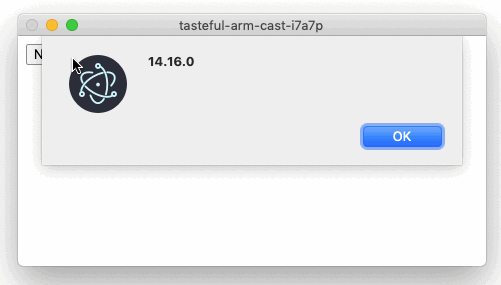Unable to use any electron or node related operations in electron . Getting error process not defined. I Checked at various places they guide to add node Support but that is already Done so stucked here My Main Application code is
const electron = require("electron");
const { app, BrowserWindow } = electron;
function createWindow() {
const win = new BrowserWindow({
width: 800,
height: 600,
webPreferences: { nodeIntegration: true },
});
win.loadFile("index.html");
}
app.whenReady().then(createWindow);
app.on("window-all-closed", () => {
if (process.platform !== "darwin") {
app.quit();
}
});
app.on("activate", () => {
if (BrowserWindow.getAllWindows().length === 0) {
createWindow();
}
});
And Index.html
<!DOCTYPE html>
<html>
<head>
<meta charset="UTF-8" />
<title>Hello World!</title>
</head>
<body style="background: white">
<h1>Hello World!</h1>
<p>
We are using node
<script>
document.write(process.versions.node);
</script>
, Chrome
<script>
document.write(process.versions.chrome);
</script>
, and Electron
<script>
document.write(process.versions.electron);
</script>
.
</p>
</body>
</html>

